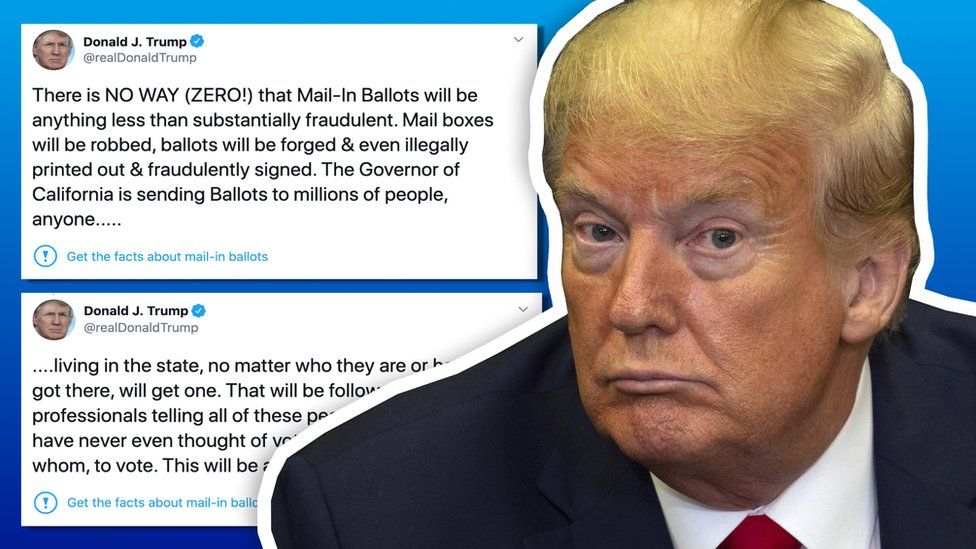 News
News
The Problem Of Big Tech QAnon
For three years, QAnon spread from the dark edges of the internet to mainstream social networks, and the social networks did little to stop it happening. Now Facebook and Twitter are trying to crack down — but it may be too late. What was once a fringe conspiracy theory has now been openly endorsed by some congressional candidates with a real shot of winning, and complimented by the President of the United States.
The Rising Politicians
The rise of this new generation of aspiring politicians — who associate with baseless claims that other politicians, A-list celebrities, and a “deep state” of bureaucrats promote child sex abuse — poses a significant new challenge for social media companies that have vowed to limit harmful content. And it illustrates what can happen when online platforms are too slow to realize they allow or are even amplifying fringe views: Those beliefs can quickly go mainstream.
On Wednesday, the same day that Facebook announced action against thousands of accounts and groups linked to QAnon and its discredited claims, President Donald Trump openly praised its followers for supporting him, calling them “people that love our country,” though he claimed not to know much about the movement.
And in perhaps the ultimate indictment of how online platforms failed to stop QAnon from gaining traction sooner, the baseless claims on which QAnon thrives have already been embraced or sympathized with by at least six Republican congressional candidates in districts ranging from Georgia to California.
A Far-Stretched Problem
The problem goes beyond QAnon. Laura Loomer, a far-right activist who has called herself a “proud Islamophobe” and has been banned by numerous online platforms, won a primary on Tuesday and became the Republican party’s nominee in a Florida congressional race.
Now, the tech companies find themselves in an even more difficult position: Having to reconcile their commitments to limit the spread of harmful content without appearing to censor the politicians who are directly involved in driving those messages to an ever-wider audience.
“Once the conspiracy theorists become the elected officials, you either need to say ‘Forget it, we’re never touching anything, let the conspiracy theories reign,’ or they need to go in the other direction and say, ‘We need to no longer give elected officials an exemption anymore,'” said Dave Karpf, a political scientist at George Washington University who has studied digital political movements.
Facebook (FB) and Twitter (TWTR) declined to comment in response to questions about that challenge.
Twitter’s Fact Check

For years the companies had skirted the issue of Trump’s long history of false and incendiary statements, but this spring Twitter took the unprecedented step of notifying users that some of his claims may be misleading or violate the platform’s policies.
And even as Twitter has cracked down on baseless allegations surrounding mail-in voting from Trump and others, for example, the company has left some of Trump’s claims on the subject untouched.
Trump has largely benefited from loopholes in social media policies meant for public figures. Under those policies, material that might have earned other users a suspension gets a pass because the content is deemed inherently newsworthy or in the public interest.This new crop of political figures could test the limits of those policies. Marjorie Taylor Greene, a GOP congressional nominee in a solidly Republican district, has expressed support for the QAnon conspiracy theory and has said, falsely, that there is “an Islamic invasion into our government offices.”
Mike Cargile, a Republican congressional candidate in California, has displayed a QAnon-affiliated hashtag on his Twitter bio. Cargile has said that the hashtag, “#WWG1WGA” or “Where we go one, we go all,” reflects his belief that “it is the perfect sentiment for all Americans to have toward one another.”Social media platforms have recently tried to clamp down on the spread of QAnon, but even in their stepped-up efforts, they appear to be giving politicians wide latitude.
In July, Twitter said activity surrounding the movement had “potential to lead to offline harm,” and that the service would no longer recommend accounts associated with QAnon. But when Twitter launched its crackdown of QAnon last month, the congressional candidates’ accounts remained unaffected — opening up the possibility that active conspiracy theorists could use the reach of political offices to advance more misleading claims.
Facebook’s Statement
On Wednesday, Facebook said it, too, will toughen its approach to QAnon. While it stopped short of banning QAnon content entirely under its Dangerous Individuals and Organizations policy, the company said some content affiliated with QAnon will now be restricted, including QAnon posts that advocate for violence or contemplate potential violence.
Politicians like Greene will still be permitted to endorse QAnon under those policies, Facebook spokesman Andy Stone acknowledged.
“We will allow people to post content that supports QAnon, so long as they do not otherwise violate our content policies,” Stone told CNN Business. “We will restrict QAnon’s ability to organize on our platform through Facebook Groups, Pages and Instagram accounts.”
As for Loomer, both Facebook and Twitter told CNN Business she will continue to be prohibited from their platforms due to earlier hateful activity, suggesting that becoming a public official is not enough to overcome a prior ban.
But Loomer’s case is also more clear-cut than many of her fellow candidates, precisely because she had already been rejected from those services. What’s less clear is how the companies would handle a politician who behaved like Loomer prior to her ban.
Recent Posts
- Feeling the Pressure at 25–30? Here’s Why Young Adults Think Time Is Running Out
- BTS Is Back! All Seven Members Complete Military Service—What’s Next for the K-Pop Kings?
- Diddy’s Blockbuster Trial Nears Verdict: What’s Next for the Hip-Hop Mogul?
- “Squid Game” Final Season Sparks Global Buzz Ahead of Premiere
- Beyoncé and Jay-Z Reunite Onstage in Paris: A Night to Remember
- Texas Bets Big on Film: $1.5 Billion Incentive Law Aims to Bring Hollywood Home
- Starbucks Considers Selling Its China Business Amid Fierce Local Competition
- JetBlue Retreats from Miami and Seattle Amid Mounting Financial Pressures
- Barbra Streisand Calls Out Hollywood’s Pay Gap in Meet the Fockers Revelation
- Elon Musk’s Robotaxi Revolution: A Cosmic Ride into the Future


